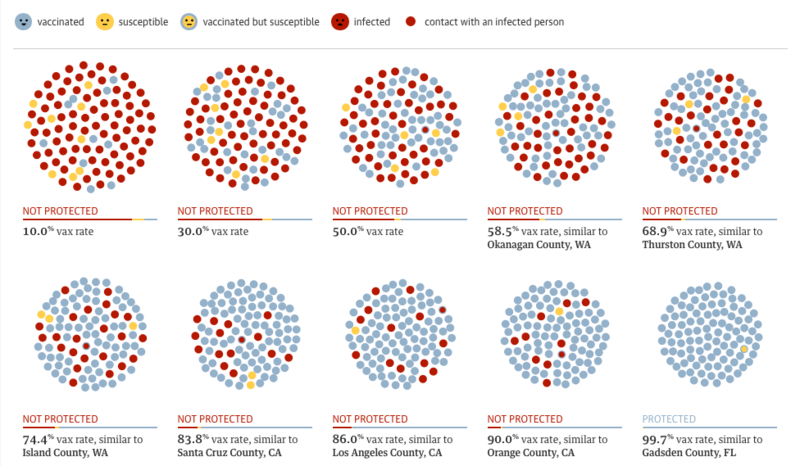FA16 Immunization Module’s Updates
Vaccination of Immunocompromised Patients
The vaccination of immunocompromised patients is a topic of importance when considereing the many facets of immunization. Vaccination may be ineffective for patients with certian immunodeficiencies, or it simply may not be safe for them to receive vaccinations.
Patients with immunodeficiencies that are extremely severe, such as in the case of organ transplant recipients, patients undergoing chemotherapy, patients suffering from a congenital immunodeficiency such as SCID, or patients with AIDS, absolutely cannot receive live attenuated vaccines. When a healthy person receives the varicella vaccine, for example, while the virus can replicate, it is very rarely pathogenic. However, in a person without an immune response to the virus, disease can and likely will occur in an uncontrollable maner. Killed or inactivated vaccines are still recommended for pateints with immunodeficiencies, but are not likley to be as effective. Because immunization functions via active immunity, if a patient's immune system is so severely compromised that it is unable to mount a response that will eventually lead to the activation of mature terminally differentiated plasma cells that can produce and secrete antibody, the vaccination will not confer immunity. Therefore, these patients often need a more boosters and higher doses of the vaccine.
Due to the problems mentioned above, immunocompromised patients are at the mercy of herd immunity. Herd Immunity has been mentioned a couple of times throughout these updates, and I think that the concept is one that could be better utilized in health care's fight against the anti-vaccine movement. By giving people the benefit of the doubt, it is relatively safe to assume that when parents decide not to vaccinate, they are doing so with the mindset that they are protecting their children. It is unlikely that they even consider the idea that they are putting someone else's life or the life of someone else's child in danger. Below is a screenshot of an extremely effective simulation demonstrating the risk we face in unvaccinated populations. I highly recommend visiting the website and watching the actual simulation, but for now, the picture will suffice to make the point. In a community of unvaccinated individuals, disease spreads easily from person to person. Unfortunately, immunocompromised individuals fall into the categories of unvaccinated, or vaccinated but susceptible. Therefore, if they live among many others that are unvaccinated they are far more likely to fall ill. By vaccinating those around immunocompromised, such as family members, some protection is provided.
https://www.cdc.gov/mmwr/preview/mmwrhtml/00023141.htm
Immunization PowerPoint - Dr. Tapping



Thanks for including the visual, this definitely adds depth to your post. I think that as health care providers part of our job will be to educate our community of the need for vaccinations not only for the benefit of oneself but for the benefit of individuals such as those that are immunocompromised. For example, some years ago my father was diagnosed with cancer and had to receive a bone transplant, during that time he was severely immunocompromised and all members of our family had to take precautions when trying to visit him. We all knew that for the sake of his health, we needed to be current on our vaccinations because a weak virus/ infection for us could have fatal for him. What I found interesting is that after his transplant, he had to receive ALL of the vaccines that we receive as infants and then onto adulthood.
I think this is a great summary of not only why immunosuppressed patients cannot receive vaccinations in the same way the general population does, but also of what methods are in place to protect those individuals. I would also like to think that when parents choose not to vaccinate their children, they truly believe they are doing what is in the best interest of their child. However, I think that only makes it harder to teach them the true facts about vaccines. But hopefully if resources such as these were more easily accessible to the general public, as Gabe suggested, the spread of misinformation would dramatically decrease.
Great examples and use of resources. I had not realized before that if a majority of the people around me are not vaccinated I run a greater risk of falling ill. I thought the simulation of herd immunity perfectly exemplified the importance of proper education on vaccines and health. It would be great if resources such as this one were more readily available to the public to deter the spread of misinformation about vaccines being dangerous and not beneficial to personal or public health.